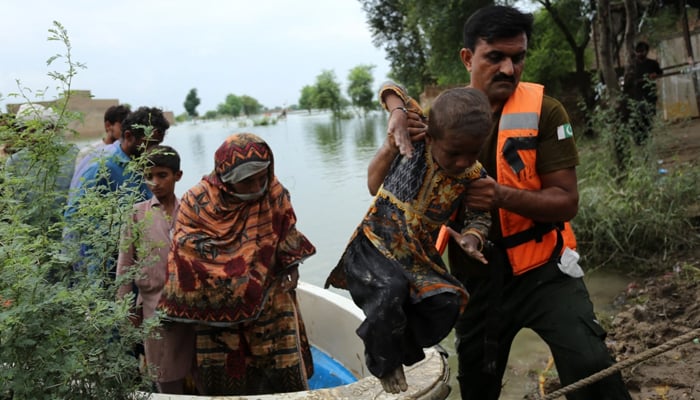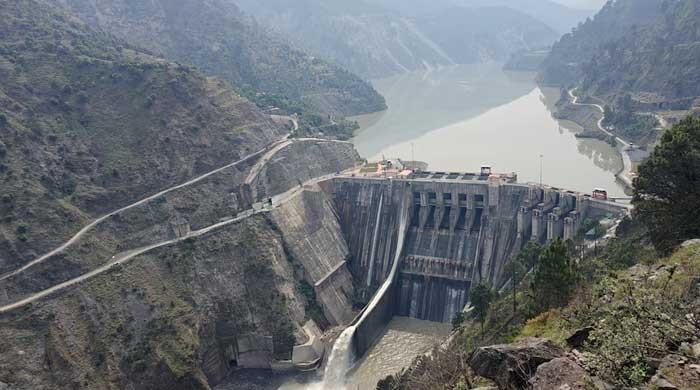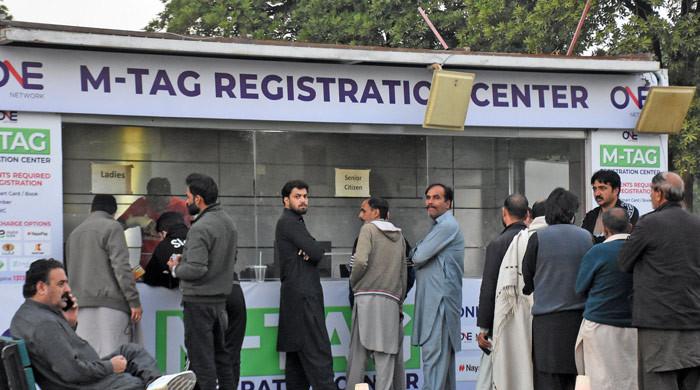Mianwali authorities rush to evacuate residents as flood waters enter Punjab
The Jinnah Barrage built on Indus River will likely witness a heavy water flow of 700,000 cusecs; flood may affect 47 areas
August 28, 2022

- The Jinnah Barrage built on Indus River will likely witness a heavy water flow of 700,000 cusecs.
- Flood may affect 47 areas.
- Warning issued for "above level" flooding in Kabul River at Nowshera and "high" to "very high" flood level in Indus River at Kalabagh and Chashma.
After flash floods due to abnormally heavy rains lay waste to several areas in Khyber Pakhtunkhwa's Nowshera and Swat, flood waters have entered Punjab.
There is a grave risk of flooding in Mianwali where authorities are looking to safely evacuate residents.
The water level in the Indus River near Rajanpur is on the rise and there is a risk the already inundated town may suffer another flood.
Moreover, due to a flood in Chenab River, the undeveloped areas of Liaquatpur have been submerged.
Over in KP's Charsadda, more flood water has entered hundreds of houses.
The Jinnah Barrage built on Indus River will likely witness a heavy water flow of 700,000 cusecs which may affect 47 areas.
Incharge Zameer Kazim at the Jinnah Barrage in Kalabagh said early morning that the flow of water into the barrage currently stands at 427,000 cusecs, while the outflow has been recorded at 424,000 cusecs.
Jinnah Barrage's total capacity to hold water is 950,000 cusecs, he said.
The Flood Forecasting Division informed the National Disaster Management Authority (NDMA) yesterday that "very high" and "above level" flooding is likely to continue in Kabul River at Nowshera during the next 24 hours.
It also said that Indus River at Kalabagh and Chashma is likely to attain "high" to "very high" flood level during the next 24 to 48 hours.
All district and city administrations were asked to timely evacuate the at-risk population from the flood-prone areas.
Thousands flee homes overnight
Tens of thousands of people fled their homes on Saturday after a fast-rising river destroyed a major bridge.
Powerful flash floods in Khyber Pakhtunkhwa caused the Kabul River to swell, sweeping away a large bridge overnight, cutting off some districts from road access.
Downstream, fears of flooding around the river banks prompted around 180,000 people in the district of Charsadda to flee their homes, according to disaster officials, with some spending the night on highways with their livestock.
Historic monsoon rains and flooding in Pakistan have affected more than 30 million people over the last few weeks, climate change minister Sherry Rehman said, calling the situation a "climate-induced humanitarian disaster of epic proportions".
The military has joined the national and provincial authorities in responding to the floods and army chief Gen Qamar Javed Bajwa on Saturday visited Balochistan, which has been hit heavily by the rains.
"The people of Pakistan are our priority and we won't spare any effort to assist them in this difficult time," he said.
Pakistani leaders have appealed to the international community for help and plan to launch an international appeal fund. The foreign affairs ministry said Turkey had sent a team to help with rescue efforts.
"The magnitude of the calamity is bigger than estimated," said Prime Minister Shehbaz Sharif, in a tweet, after visiting flooded areas.
Another 119 die
Another 119 people died and 71 were injured due to rain and flood in the last 24 hours, according to the National Disaster Management Authority.
The authority said that the death toll has reached 1,033, with 1,527 people injured.
In the last 24 hours, 83,000 cattle perished, it added.
So far 950,000 homes have been damaged, besides 3,451km of roads and 149 bridges, said the NDMA.
The floods have impacted 5,773,000 people in 110 districts, the authority said.









